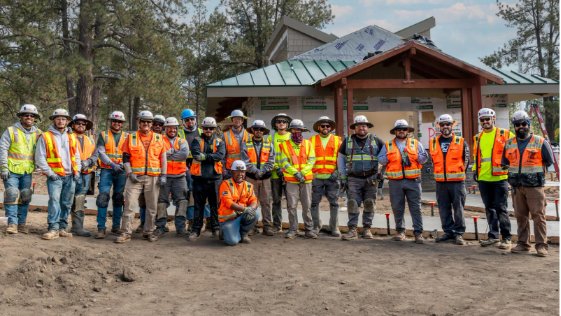There is only one chance to make a good first impression. For companies, that first impression comes during the interview process as they meet with prospective candidates. Not every interview is going to result in an offer—and that’s okay. But it’s still important for every candidate to leave their interview feeling valued and thinking positively about the company so they can represent the company in a positive light in their networks. So, how can companies make sure that every interview is a positive experience for a candidate? Here are three simple strategies:
1. Treat every interview as a marketing opportunity for the company
Whether or not the company ends up hiring the candidate, that person is going to walk away with thoughts and comments about the company—and they’re likely to pass those comments on to their networks. So it’s important that companies want to make a good first impression. That means company leaders should put themselves in the candidate’s shoes and ask themselves what would make the best impression on them, if they were interviewing.
Limit rescheduling interviews as much as possible to avoid inconveniencing the candidate and showing a lack of respect for their time and preparation. When managers are in the interview, they should be present—not checking their phones or rushing through questions. Interviewers should try to make the candidate feel like they are the most important part of that interviewer’s day. Positive experiences (even ones that don’t result in an offer) can bolster a company’s reputation in the market, while negative ones can easily go viral on social media and hurt that company’s chances of recruiting top talent in the future.
2. Demonstrate a strong attention to detail
It’s a safe bet that every candidate is doing their best to prepare for the interview. Managers should make it clear that they’re doing the same thing by sending them an itinerary a few days in advance, and including the names of anyone the candidate will be meeting so they can do preliminary research on those managers. This will show the candidate that the company is organized and values their time, which makes their first experience with the company culture a positive one. Company leaders should also make sure everyone at the interview is prepared and on the same page so they can cover all the necessary angles and get a good feel for whether the candidate is the right fit for the company.
3. Follow up within 24 hours to give the candidate some feedback, even if that feedback is “we’re not moving forward”
No one likes to be kept in the dark, and interviewers don’t want to give candidates false hope by delaying uncomfortable conversations. And a candidate always has hope until they are told “no.” If the company decides to pass on the candidate, they shouldn’t send an automated rejection letter; instead, the interviewer should keep it concise, but personalize the message to help soften the blow. It’s important to remember that even if a candidate isn’t a good fit right now, they might be able to fit future needs, so a company doesn’t want to burn bridges.
If the hiring manager is interested in moving forward with a candidate, it’s even more important to let them know as quickly as possible. Top talent has a short shelf life on the market, so managers can’t leave them hanging or they’ll move on to a company that better proves their interest. In either case, hiring managers should always provide prompt and accurate responses to any inquiries a candidate sends, and keep them up to date on the decision-making process.
Creating a positive interview experience for candidates is important for companies because, whether or not those candidates ultimately become employees, they can have an impact on a company’s reputation in the market. These three simple strategies will help guarantee that the candidates a company interviews walk out the door of that company with a positive impression.







